If Someone's Embarrassed About Their Looks, They'll Say These 11 Phrases When You Run Into Them
People like this are always operating from a place of insecurity.
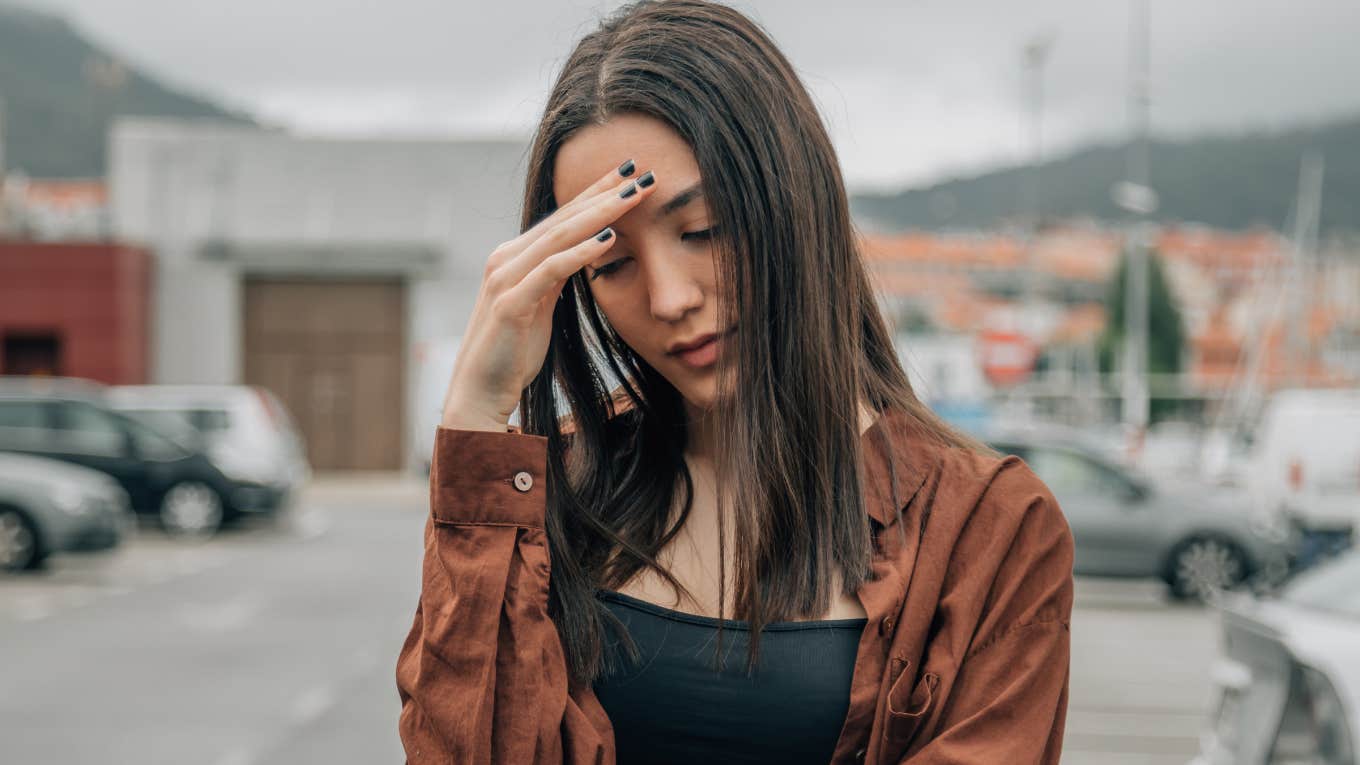 carballo | Shutterstock
carballo | Shutterstock If you're a self-assured and confident person, you know that it's often easy to spot an insecure individual in a conversation or social interaction. They're always either withdrawn from conversations to cope with their self-consciousness or turning down compliments, making jabs at themselves, or pressuring people to judge them.
Of course, if you're insecure about your looks, you may believe these defense mechanisms are subtle — or, maybe, you don't realize you're doing them at all. If someone's embarrassed about their looks, they'll say these phrases when you run into them. So, if you're the person catching up, you may recognize these phrases, but for the insecure person themselves, it may be a moment of clarity to see them on paper.
If someone's embarrassed about their looks, they'll say these 11 phrases when you run into them
1. 'I wasn't planning on seeing anyone today'
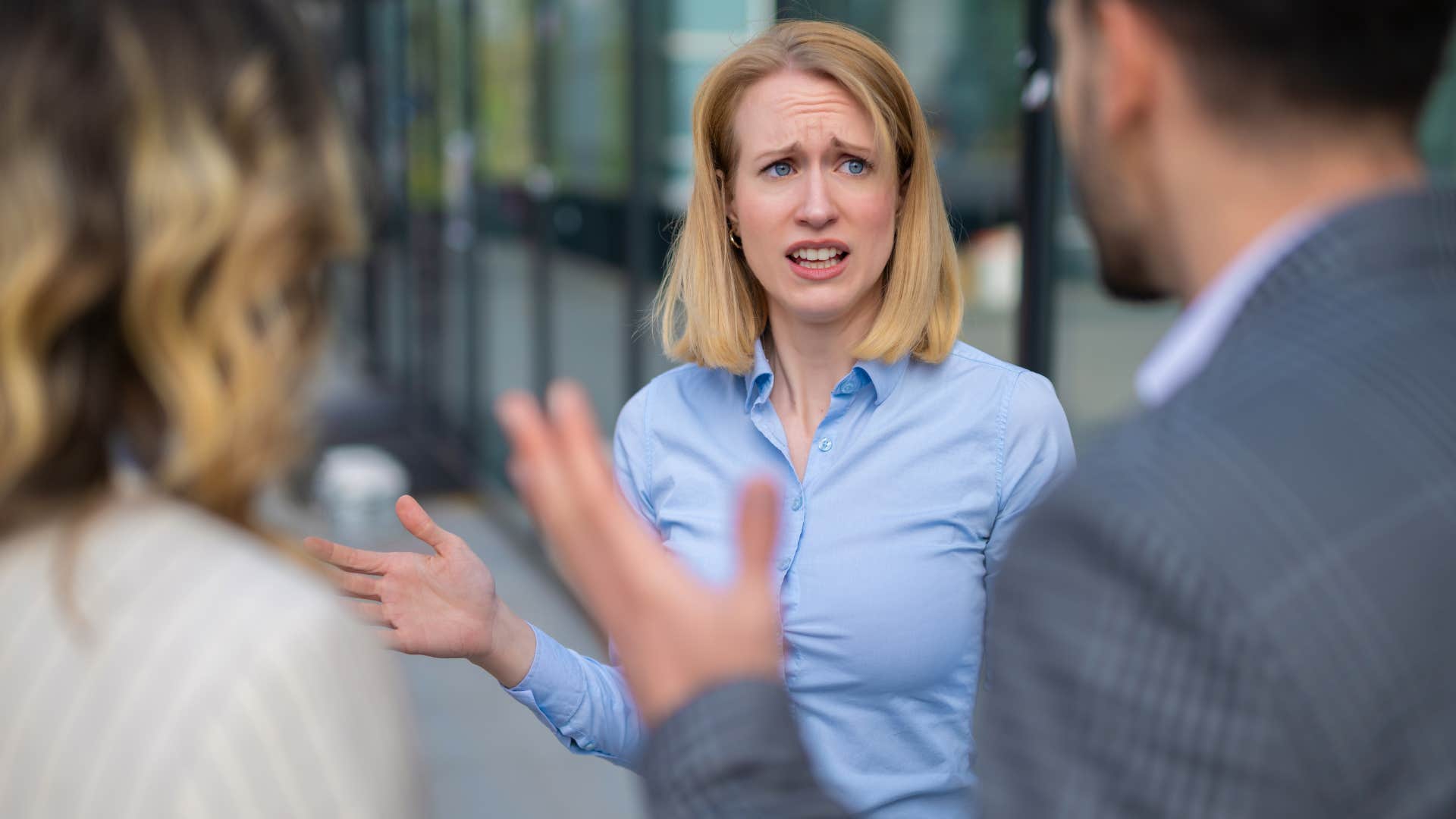 DexonDee | Shutterstock
DexonDee | Shutterstock
By suggesting that they weren't planning on "seeing anyone" or being perceived, insecure people can dismiss their own insecurities and try to cope with acknowledging other people's judgements. Of course, even when someone feels self-conscious, their insecurities are hardly ever noticed, let alone judged, by others.
However, their internal sense of self-consciousness is often perceived by others, sometimes in ways that they don't even realize. Of course, phrases like this are intentional, but other things, like over-apologizing and trying to people-please for comfort, can be entirely subconscious.
2. 'Ignore my face'
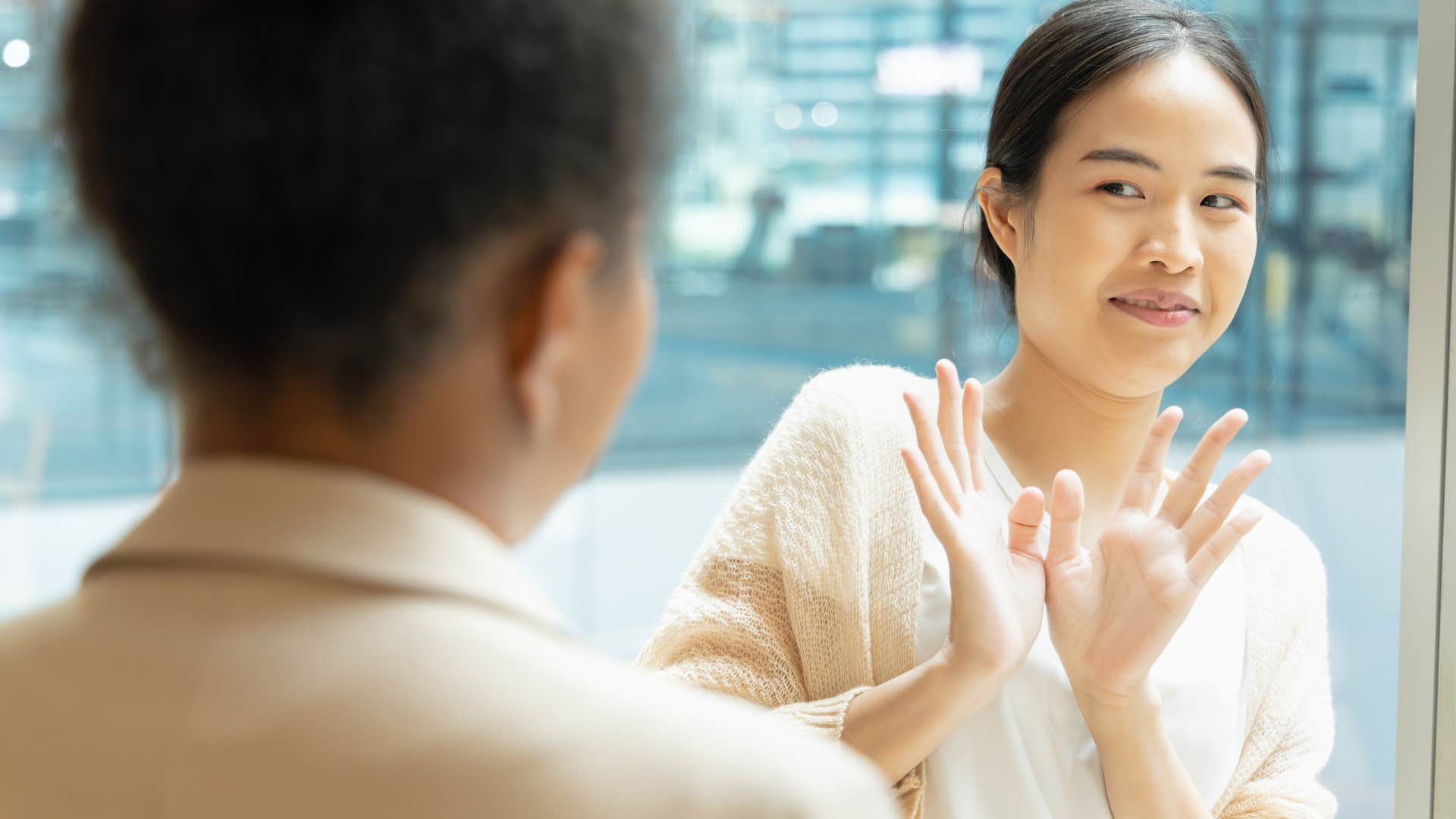 9nong | Shutterstock
9nong | Shutterstock
Insecure people who feel embarrassed by their looks often underestimate their control, security, and power over conversations. They experience things like isolation and mental health struggles from their insecurities because they put other people and their perceived opinions ahead of themselves.
However, things like self-control and hope often protect people from feeling the severe consequences of insecurity, according to a study from the Journal of Affective Disorders. They have the self-control to keep these kinds of unwanted thoughts out of their head and unwarranted phrases out of conversations, even if it takes a lot of practice and regulation.
So, if someone's embarrassed about their looks and uses phrases like "ignore my face," chances are they lack an element of self-control, as well as general confidence.
3. 'I look like such a mess'
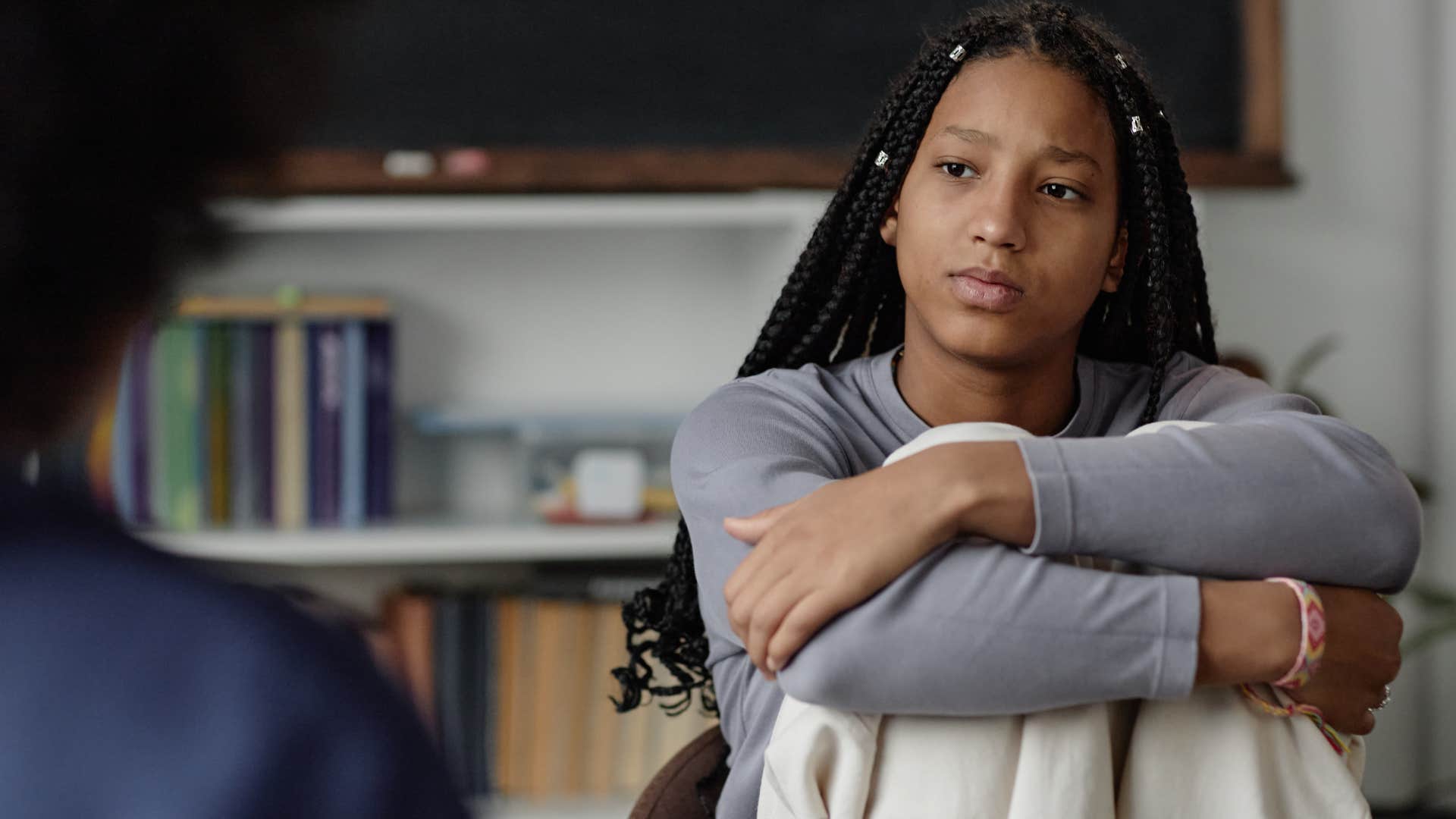 SeventyFour | Shutterstock
SeventyFour | Shutterstock
Insecure people compensate for their internal insecurity with outward thoughts and phrases. By pulling other people into their own self-critical thoughts, they feel weirdly validated — like other people agree with them about what they've been telling themselves. Even a nod or a smile in response to a phrase like "I look like such a mess" is more than enough to affirm their self-consciousness.
Of course, eventually, hearing phrases like "I look like such a mess" from other people consistently is exhausting and emotionally draining. Other people feel burdened with the responsibility of building their confidence up and turning down their own self-critiques.
4. 'I swear I normally don't look like this'
 Nicoleta Ionescu | Shutterstock
Nicoleta Ionescu | Shutterstock
While self-conscious people generally fend off the consequences of their insecurities with social support, at least according to a study from BMC Public Health, they can quickly sabotage these relationships by overusing phrases like "I swear I don't normally look like this" in conversations.
So, if someone's embarrassed about their looks, they may believe compensating with self-critical jabs is normal or innocent, but it may exacerbate the mental health struggles they face in the long run.
5. 'I look rough, right?'
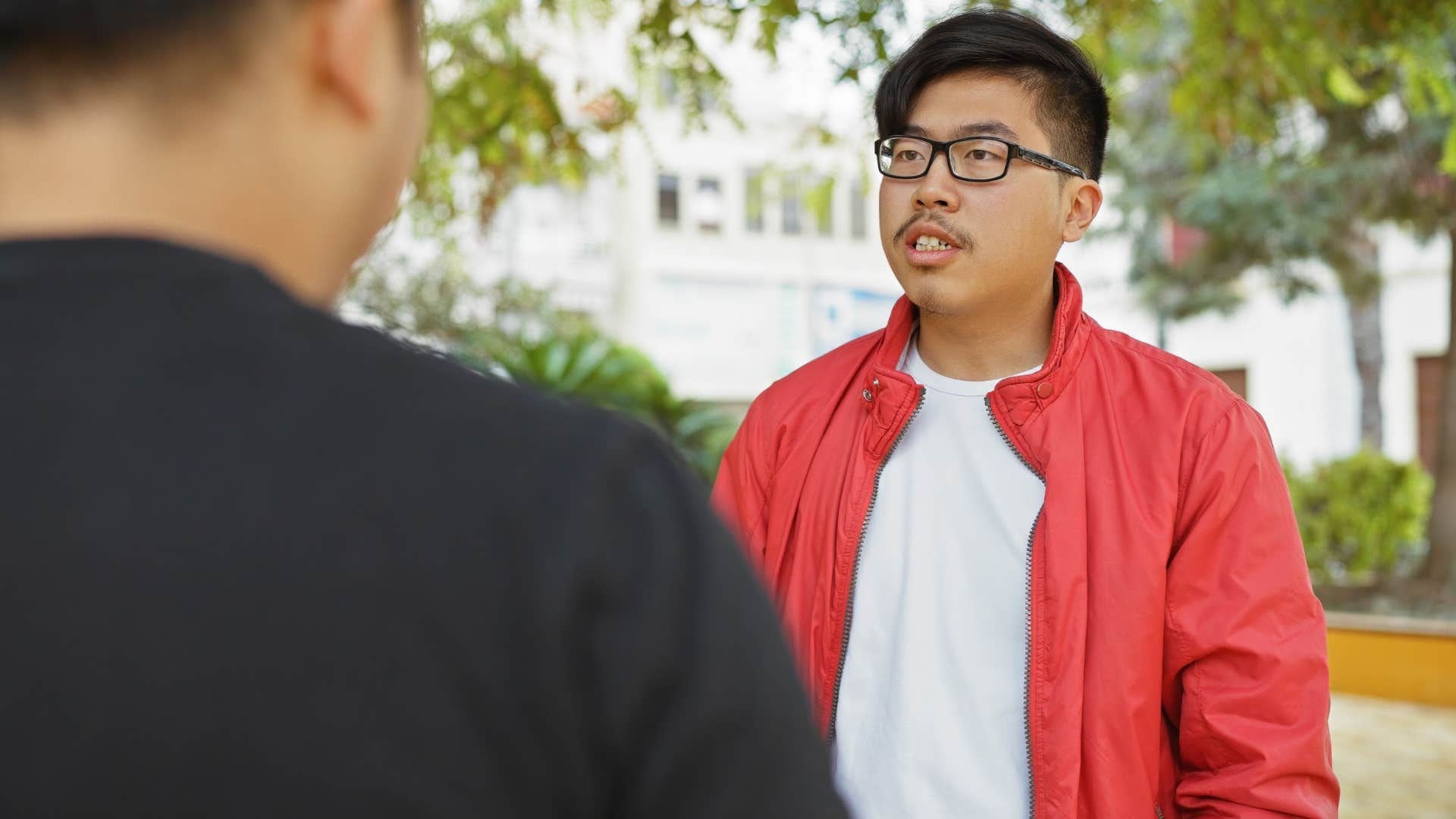 Krakenimages.com | Shutterstock
Krakenimages.com | Shutterstock
We all have our insecurities and moments of low self-esteem, but when chronically insecure people project their own feelings of inadequacy onto others — saying things like "I'm sorry you have to deal with me" or "I look rough, right?" — all they do is create a burden for others. They talk negatively about themselves and push other people to think the same, before anyone has a chance to form their own opinion.
Even if it seems subtle, if someone's embarrassed about their looks and makes it obvious in a conversation, it can truthfully change the way people think about them, which is usually what they're most afraid of.
6. 'You caught me on my worst day'
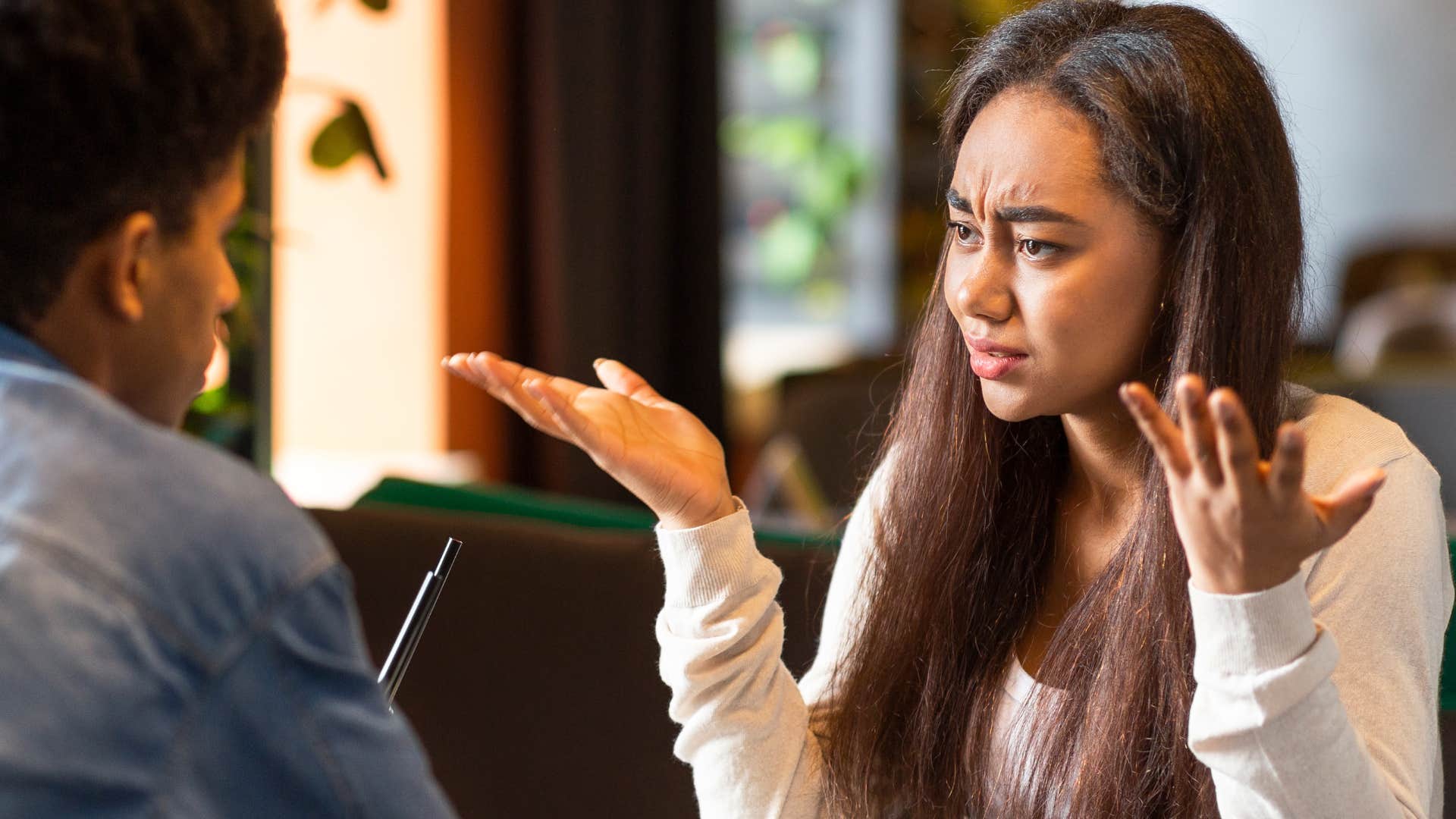 Prostock-studio | Shutterstock
Prostock-studio | Shutterstock
By saying things like "you caught me on my worst day," an insecure person can make other people believe that they put no effort into their appearance. If it looks bad, that's not their fault — they just "didn't have the time" or "were so busy with work."
However, what if this person actually spent hours getting ready? What if they put a lot of time into crafting their outfit? And now, they're just dismissing their own effort and urging people to validate the belief — that "they're unattractive" — they carry so vehemently inside their own mind.
Even if it hurts to hear people's judgments, it's this strange validation of their own insecurities that almost makes dealing with it — and of course, leaning into the sadness or disappointment of it — easier for them to justify.
7. 'Now isn't a great time for a photo'
 Gorgev | Shutterstock
Gorgev | Shutterstock
Sometimes, when you see an old college friend or run into a family member you don't see often, the first thing everyone wants to do is take a photo. While it seems like an innocent way to post on social media or capture the moment, if someone's embarrassed about their looks, they'll do whatever it takes to avoid being on camera.
Especially if they don't have the power to edit the photo or add a filter, behaviors that many insecure people often do for their social media and camera rolls, according to a study from the Journal of Ecohumanism, they're less likely to agree to it in the moment.
8. 'I should've worn a hat or something'
 Iryna inshyna | Shutterstock
Iryna inshyna | Shutterstock
According to a survey conducted by Mortar Research, 70% of women feel self-conscious when they don't like the way their hair looks. So, especially for a woman, something as seemingly small as the way their hair is falling can make all the difference in how confident they feel speaking with other people in public.
If they're feeling self-conscious, they'll say things like "I should've worn a hat or something" or "don't look at my hair," even though they draw more attention to the things they're insecure about. Because, at the end of the day, nobody is looking at you or perceiving your insecurities as harshly as you are.
9. 'Don't judge, I'm so exhausted'
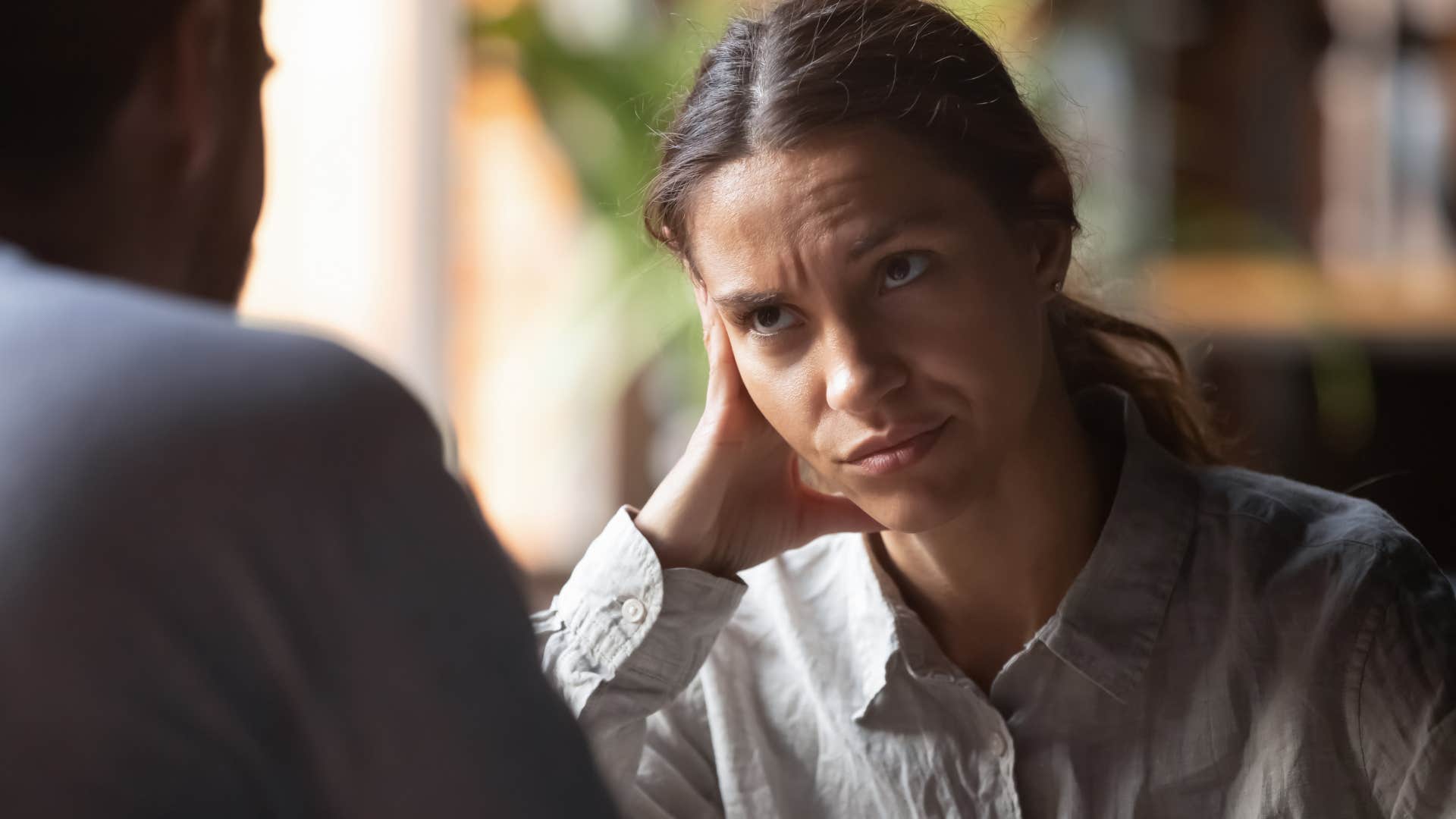 fizkes | Shutterstock
fizkes | Shutterstock
Many people who don't get enough sleep or feel emotionally drained from their daily lives often experience a change in their appearance, according to a study from SAGE Open, which is sometimes noticeable to other people.
However, when people who are embarrassed by their appearance use a phrase like "don't judge, I'm so exhausted," they're usually trying to justify and cope with their own internal self-consciousness. Even while other people are focused on listening and conversation, self-conscious people can only focus on the awareness of their own body and appearance.
They fixate on their insecurities and try to imagine what other people are judging them for, even at the expense of active listening and genuine connection with others.
10. 'You're looking a little rough yourself'
 GaudiLab | Shutterstock
GaudiLab | Shutterstock
According to clinical psychologist Nick Wignall, many highly insecure people actually criticize other people to distract from their own self-esteem issues. By making other people feel less confident and sabotaging their mood, they lower them down to their level, even at the expense of their own well-being and relationships.
That's why phrases like "you're looking a little rough" or "Do you always wear this in public?" are often associated with self-consciousness — they're not only hyperfixated on other people's appearances, but trying to distract people from their own.
11. 'I know, I look so bad'
 f.t. Photographer | Shutterstock
f.t. Photographer | Shutterstock
According to a study from the Journal of Affective Disorders, people who regularly talk negatively about themselves, both internally and to others, often develop mental health concerns like depression and even chronic stress at disproportionate rates. They set themselves up for failure — sabotaging their relationships, mood, and general self-esteem by picking apart their own appearance and perceived flaws.
If someone's embarrassed about their looks and generally insecure, they'll often say phrases like "I know, I look so bad" often, trying to criticize themselves before other people have the chance to do it for them.
Zayda Slabbekoorn is a senior editorial strategist with a bachelor's degree in social relations & policy and gender studies who focuses on psychology, relationships, self-help, and human interest stories.

